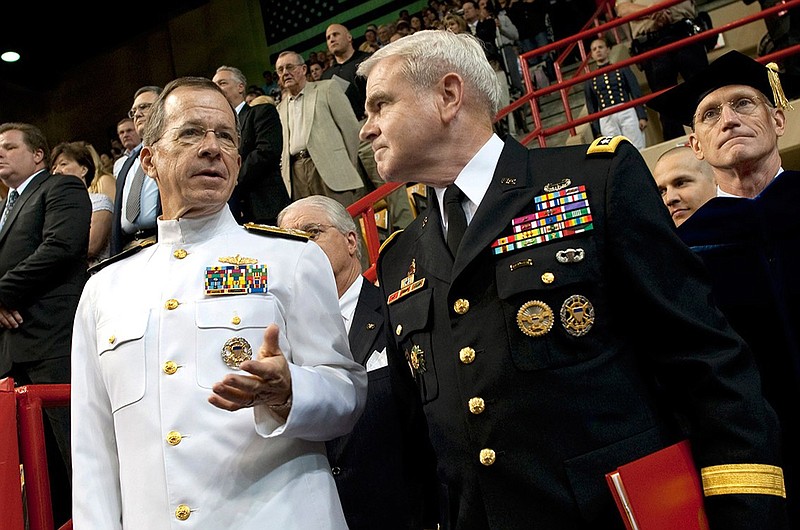The superintendent of the Virginia Military Institute resigned Monday after Black cadets described relentless racism at the nation's oldest state-supported military college, and Democratic Gov. Ralph Northam ordered an independent probe of the school's culture.
Retired Gen. J.H. Binford Peay III, 80, had been superintendent of the 181-year-old school since 2003.
In his resignation letter to John Boland, president of VMI's board of visitors, Peay said he'd been told by the governor's chief of staff that Northam and other state legislators had "lost confidence in my leadership" and "desired my resignation."
"It has been the honor of my life to be the Superintendent of VMI for over seventeen years," the retired four-star general wrote. "I always have and always will love the Institute, all of our cadets, alumni and the entire VMI family."
During Peay's tenure, multiple accounts of racist incidents have surfaced at VMI.
This month, The Washington Post documented how one Black student filed a complaint against a White adjunct professor who reminisced about her father's Ku Klux Klan membership last year in the middle of class. In 2018, a white sophomore told a Black freshman during Hell Week that he would "lynch" his body and use his "dead corpse as a punching bag" -- but was suspended, not expelled.
After The Post's story was published, Northam, a 1981 VMI graduate, ordered an independent investigation into the Lexington school, which received $19 million in state funds in fiscal 2020. In a letter announcing the inquiry, Northam and other state officials said they had "deep concerns about the clear and appalling culture of ongoing structural racism" at VMI.
Boland rejected that description in a reply to the governor, saying "systemic racism does not exist here and a fair and independent review will find that to be true."
Peay also emailed the VMI community last week saying he did not believe systemic racism is present at the school.
VMI was the last public college in Virginia to integrate, admitting five Black students in 1968. It took a 1996 Supreme Court decision -- written by Justice Ruth Bader Ginsburg -- to end its resistance to allowing women to attend.
In announcing Peay's resignation, Boland said he accepted it with "deep regret." He said Peay was a "great American, patriot, and hero. He has profoundly changed our school for the better in all respects."
According to the school's website, Brig. Gen. Robert "Bob" Moreschi, the deputy superintendent for academics and dean of faculty, will serve as acting superintendent. Moreschi began teaching at VMI in 2002 and became a tenured professor in 2008.
Peay did not immediately return a message left at his home.
In a statement, Northam's spokeswoman, Alena Yarmosky, said "change is overdue at VMI, and the Board of Visitors bears a deep responsibility to embrace it." She added: "Diversity is a fundamental commitment. Without this recognition, VMI cannot properly educate future citizen-soldiers nor live up to its values of honor, character and service."
About 8% of VMI's 1,700 students are Black. Many are athletes who said they weren't fully aware of the school's history or racial climate when they accepted scholarships.
The school, whose cadets fought and died for the slaveholding South during the Civil War, has long venerated its Confederate past. But the college has come under increasing pressure from Black alumni and cadets to remove the campus's statue of Confederate Gen. Stonewall Jackson, who taught at VMI and was an enslaver of six people.
In July, Peay defended the statue of Jackson, calling him "a military genius" and a "staunch Christian."
Information for this article was contributed by Laura Vozzella of The Washington Post.

